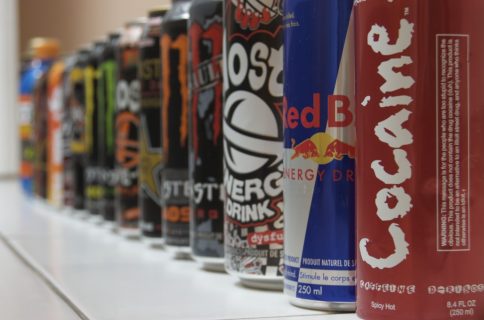
I’ve been really busy lately balancing work, school, sports, and hanging out with friends. I haven’t had a lot of time for sleep, so I’ve been drinking a lot of energy drinks to try to keep up with everything. Is this okay for my health?
With everything that you’re juggling, it makes sense that sleep is last on your to-do list! Marketing campaigns for energy drinks that offer a boost in a bottle are often targeted right at busy teens. And who doesn’t need the five extra hours that certain energy drinks promise? But you can’t replace sleep with caffeine, and trying to can lead to some serious health consequences.
In moderation, caffeine is fairly safe, although using it regularly can create a strong dependence, leading to withdrawal symptoms like headaches and irritability if you forego your morning cup of coffee. The American Academy of Pediatrics recommends that teens consume no more than 100 milliliters of caffeine per day–about one single cup of coffee or one serving of an energy drink. Energy drinks couple big doses of caffeine and other ingredients, like taurine and B vitamins, with sugary flavors that make it easier to overdo it without noticing. Overdosing on caffeine can cause some really scary symptoms, from jitters and digestive issues to heart palpitations and even hallucinations. If you must caffeinate, try to stick to tea and coffee, and watch that your intake doesn’t exceed the recommended 100 mg threshold.
When you’re burning the candle at both ends, it can be tough to find time to socialize with your friends. If you’re under 21, this socializing should not involve drinking. Mixing energy drinks with alcohol, though a very common practice, can dangerously amplify the risks of both substances. Energy drinks mask the effect of alcohol at first, making you feel less drunk and more likely to overdo it. The pairing has been linked to alcohol poisoning and cardiac issues, especially in teens.
Getting enough sleep is both especially important and especially challenging for teens, who have little control over early school start times and work schedules. Ideally, teens need about 8 to 10 hours of sleep, which certainly sounds like a dream! Finding balance in your schedule is an ongoing journey, and something you’ll likely strive for your whole life. The sooner you can start prioritizing your health in whatever ways you can, the better foundation you’ll have for a busy, yet balanced, future.


